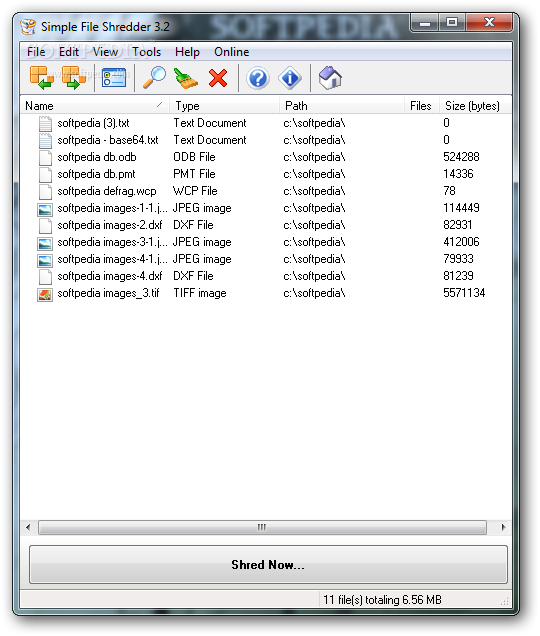
One other tip for wiping files and free space would be to first encrypt the files that you want to delete (using 7zip or AxCrypt for example), then wipe those files using shredding software.
#File shredder Pc
The only hard drives that were connected to the PC were the ones to be shredded - it didn't even have an OS drive since I was able to bypass it in the BIOS. At work I set up a dedicated shredding station that booted up using DBAN on CD. This way, depending on your hardware setup, you can minimize what hard drives are running and essentially nix data being copied somewhere without your knowledge.
#File shredder software
While Hardwipe seems to be a legitimate app, going forward what I will be doing is first formatting the drive using the OS, then running the hard drive shredding software.Īlternatively, what you can do is run shredding software off a USB stick or CD.
/securely-file-shredder-5a479b8f842b170037eb8620.png)
This was exactly my concern after I used Hardwipe to shred a drive. But I might be wrong.Īlso which free disk space wiper are you using and do you feel 100% secure and safe when wiping free space or shredding your files?
#File shredder portable
I am using the portable version of CCleaner.įile shredder is a bit more suspicious to me, since the developer company site doesn't have an email or the firm is not well known. CCleaner is closer to my selection, but for some reason it sees my external USB drives as SSD, and can perform only one pass of free space wipe. I am considering to wipe the free disk space of my hard disk drives, but I am really not sure if CCleaner or File Shredder are really 100% secure. They know that we are using that kind of software for deleting confidential files, so they might be after our data. I know I might thinking too negatively, but while those software are securely deleting the files or wiping free disk space, is there any chance for those programs to collect information of the deleted files, for example by making small screenshots of our data or compressed copies of the txt files, documents, passwords, or jpg or videos files and transmit to an external IP through the internet?Įven though unplugging the ethernet internet cable or use the firewall to block those programs to send any data over internet while the deleting process happens, isn't there any possibility for the software to copy all our deleted files to another position of our hard disks, hidden from us, and transmit them slowly and at random times when the software traces that we are back online? We assume that the software is downloaded from the developer's sites.

Lets say we are using PC Windows, and software CCleaner (from piriform) or File Shredder (found here) to securely delete our files or wipe our free disk space. I was wondering how secure are the file shredding software and free space wipers?


 0 kommentar(er)
0 kommentar(er)
